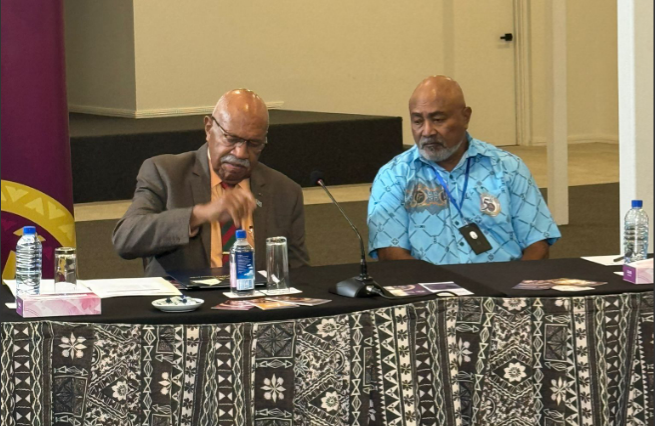Prime Minister Sitiveni Rabuka continued his testimony before the Truth and Reconciliation Commission, reflecting on intelligence reports, rising ethnic tensions, and his justification for the 1987 military takeover.
Rabuka said that before the coup, he had been informed of planned disruptions in major centres through reports from the Special Branch.
He told the Commission that he recognised one of the individuals named in the reports.
“I saw one of the names mentioned and recognised it, and I said to him, ‘Do not do this. It’ll be bad for everybody.’”
Rabuka then addressed the long-held perception that he believed there was “no other way” to resolve the tensions of the time.
He said the author of the book No Other Way had selected the title after hearing him repeat that phrase many times.
Rabuka acknowledged the forceful nature of his actions in 1987.
“The word you have used — ‘violent imposition of will’ — I cannot deny that,” he said. “In the army, violence is the use of weapons, whether the weapon is loaded or not.”
He described the coup as a pre-emptive move to avert a more dangerous situation.
“I felt it was a pre-emptive action to prevent any worse situations. If that had not happened, the nature of the 1987 appeal — racial and ethnic differences coming to a boiling point — would have worsened.”
Rabuka said the tensions reflected a deeper national shift, as Fiji moved from a largely homogenous society into a multi-ethnic one.
“There was an actual concern — a carryover from the security of a monogenous society slowly metamorphosing into a multi-ethnic society, which had become dominated by other ethnic groups apart from Fijians,” he said.
He stressed that his explanation was not meant as justification.
“Perhaps that is an explanation, not justification — an explanation of what happened, how we saw things developing, and what I thought I could do to stop it from deteriorating.”



